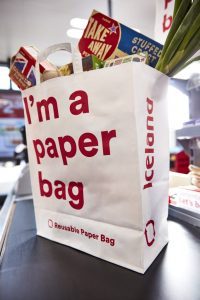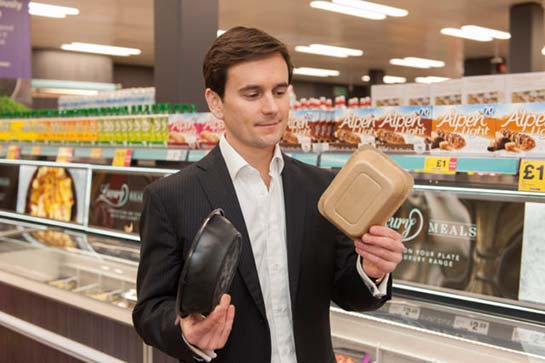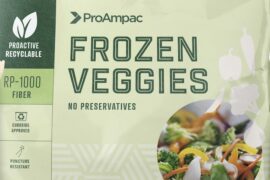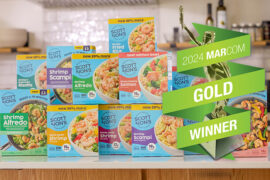The Iceland Group has achieved a 29% reduction in its overall plastics packaging usage, two years on from the frozen food specialist retailer’s pledge to remove plastics from all own label product packaging by the end of 2023. The Deeside, Wales-headquartered chain, which operates more than 950 stores across the United Kingdom and abroad, was the first globally to make such a commitment.
The nearly one-third reduction in volume reflects removal of 3,794 tons from Iceland’s annual plastic usage. The company has promised to fulfill its commitment without passing costs on to customers, investing heavily in making plastic-free, sustainable solutions accessible to shoppers.
The retailer has seen significant wins across high volume ranges, such as frozen ready meals, where 74 lines have been moved from non-recyclable black plastic and into paperboard-based trays. In addition to its work to remove black plastic, Iceland has also made significant progress in addressing other difficult to recycle plastics, including PVC and polystyrene.
Managing Director Richard Walker (pictured above) commented: “We received overwhelming support from the public when we announced our commitment back in January 2018, and I’m enormously proud of the progress we’ve made over the past two years. To have removed 29% at this stage is a real milestone in our journey and we continue to innovate and develop, week by week and ton by ton.
“The scale of the challenge we have taken on is huge, partly because of the lack of alternative solutions in some instances, the infrastructure in the manufacturing industry which in many cases is built around plastic usage, and of course the fact that we are the only retailer to have made a ‘totality’ commitment.
Collaboration with suppliers has been key to the progress made to date. Iceland has engaged almost 100 own label suppliers to establish working groups and set out frameworks for plastic removal, with a redevelopment plan set out for each and every line. As well as its work across supply chains, the retailer has collaborated closely with operations colleagues and conducted research with customers to ensure that solutions developed are fit for purpose. It is also encouraging all of its branded suppliers to take a collaborative approach on plastic packaging reduction.
Store operations have also been addressed to remove plastic where possible, ensuring that the retailer’s plastic footprint is reduced ever further. This has included the development and large-scale trial of a super strong, reusable paper carrier bag.






